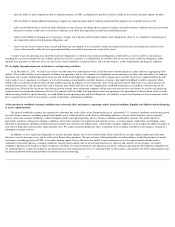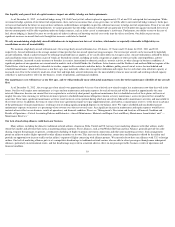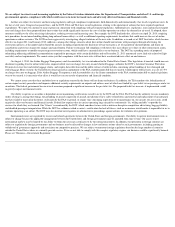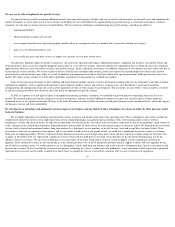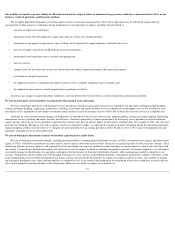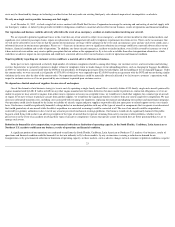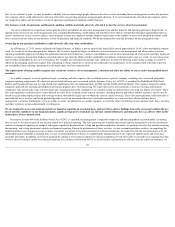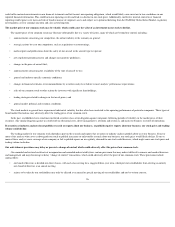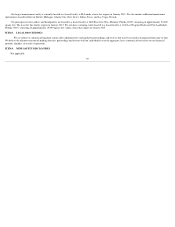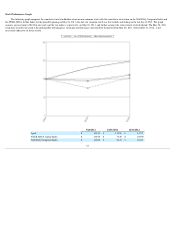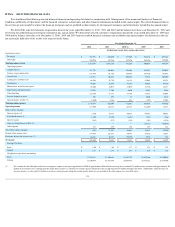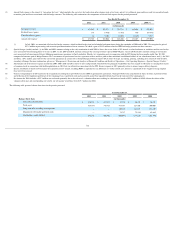Spirit Airlines 2012 Annual Report Download - page 27
Download and view the complete annual report
Please find page 27 of the 2012 Spirit Airlines annual report below. You can navigate through the pages in the report by either clicking on the pages listed below, or by using the keyword search tool below to find specific information within the annual report.
could suffer material misstatements in our financial statements and fail to meet our reporting obligations, which would likely cause investors to lose confidence in our
reported financial information. This could harm our operating results and lead to a decline in our stock price. Additionally, ineffective internal control over financial
reporting could expose us to increased risk of fraud or misuse of corporate assets and subject us to potential delisting from the NASDAQ Global Select Market, regulatory
investigations, civil or criminal sanctions and class action litigation.
The market price of our common stock may be volatile, which could cause the value of an investment in our stock to decline.
The market price of our common stock may fluctuate substantially due to a variety of factors, many of which are beyond our control, including:
The stock markets in general have experienced substantial volatility that has often been unrelated to the operating performance of particular companies. These types of
broad market fluctuations may adversely affect the trading price of our common stock.
In the past, stockholders have sometimes instituted securities class action litigation against companies following periods of volatility in the market price of their
securities. Any similar litigation against us could result in substantial costs, divert management’s attention and resources, and harm our business or results of operations.
If securities or industry analysts do not publish research or reports about our business, or publish negative reports about our business, our stock price and trading
volume could decline.
The trading market for our common stock depends in part on the research and reports that securities or industry analysts publish about us or our business. If one or
more of the analysts who cover us downgrade our stock or publish inaccurate or unfavorable research about our business, our stock price would likely decline. If one or
more of these analysts cease coverage of our company or fail to publish reports on us regularly, demand for our stock could decrease, which might cause our stock price and
trading volume to decline.
Our anti-takeover provisions may delay or prevent a change of control, which could adversely affect the price of our common stock.
Our amended and restated certificate of incorporation and amended and restated bylaws contain provisions that may make it difficult to remove our board of directors
and management and may discourage or delay “change of control” transactions, which could adversely affect the price of our common stock. These provisions include,
among others:
26
•
announcements concerning our competitors, the airline industry or the economy in general;
•
strategic actions by us or our competitors, such as acquisitions or restructurings;
•
media reports and publications about the safety of our aircraft or the aircraft type we operate;
•
new regulatory pronouncements and changes in regulatory guidelines;
•
changes in the price of aircraft fuel;
•
announcements concerning the availability of the type of aircraft we use;
• general and industry-
specific economic conditions;
• changes in financial estimates or recommendations by securities analysts or failure to meet analysts’
performance expectations;
•
sales of our common stock or other actions by investors with significant shareholdings;
•
trading strategies related to changes in fuel or oil prices; and
•
general market, political and economic conditions.
• our board of directors is divided into three classes, with each class serving for a staggered three-year term, which prevents stockholders from electing an entirely
new board of directors at an annual meeting;
•
actions to be taken by our stockholders may only be effected at an annual or special meeting of our stockholders and not by written consent;



